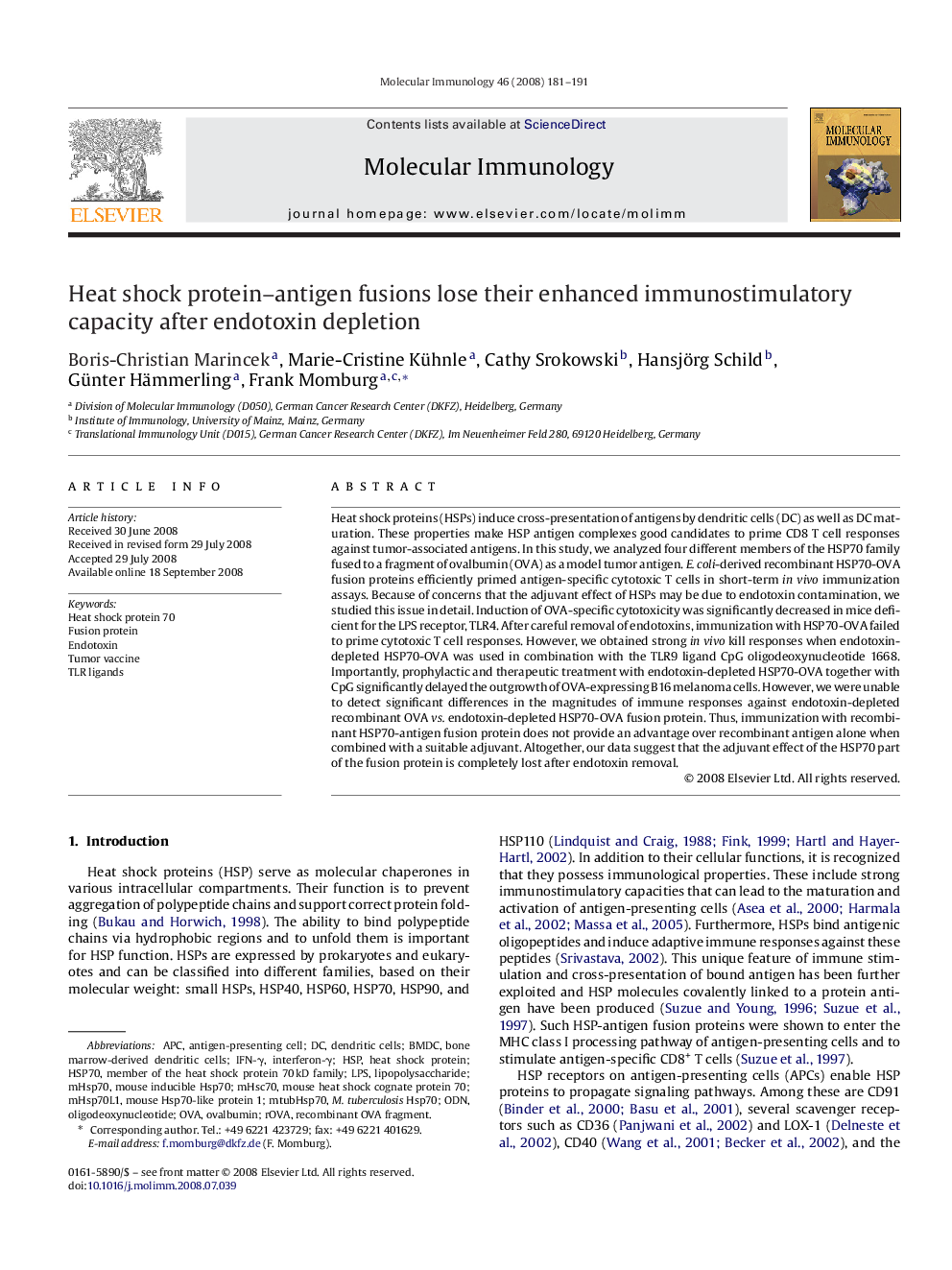| Article ID | Journal | Published Year | Pages | File Type |
|---|---|---|---|---|
| 2832733 | Molecular Immunology | 2008 | 11 Pages |
Heat shock proteins (HSPs) induce cross-presentation of antigens by dendritic cells (DC) as well as DC maturation. These properties make HSP antigen complexes good candidates to prime CD8 T cell responses against tumor-associated antigens. In this study, we analyzed four different members of the HSP70 family fused to a fragment of ovalbumin (OVA) as a model tumor antigen. E. coli-derived recombinant HSP70-OVA fusion proteins efficiently primed antigen-specific cytotoxic T cells in short-term in vivo immunization assays. Because of concerns that the adjuvant effect of HSPs may be due to endotoxin contamination, we studied this issue in detail. Induction of OVA-specific cytotoxicity was significantly decreased in mice deficient for the LPS receptor, TLR4. After careful removal of endotoxins, immunization with HSP70-OVA failed to prime cytotoxic T cell responses. However, we obtained strong in vivo kill responses when endotoxin-depleted HSP70-OVA was used in combination with the TLR9 ligand CpG oligodeoxynucleotide 1668. Importantly, prophylactic and therapeutic treatment with endotoxin-depleted HSP70-OVA together with CpG significantly delayed the outgrowth of OVA-expressing B16 melanoma cells. However, we were unable to detect significant differences in the magnitudes of immune responses against endotoxin-depleted recombinant OVA vs. endotoxin-depleted HSP70-OVA fusion protein. Thus, immunization with recombinant HSP70-antigen fusion protein does not provide an advantage over recombinant antigen alone when combined with a suitable adjuvant. Altogether, our data suggest that the adjuvant effect of the HSP70 part of the fusion protein is completely lost after endotoxin removal.
